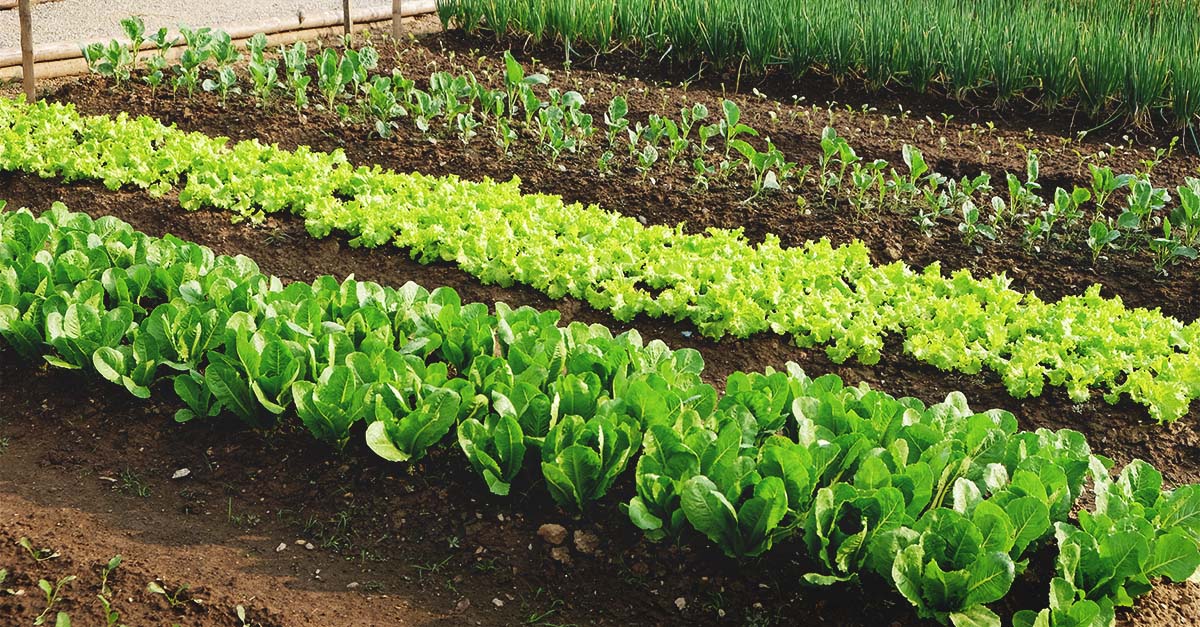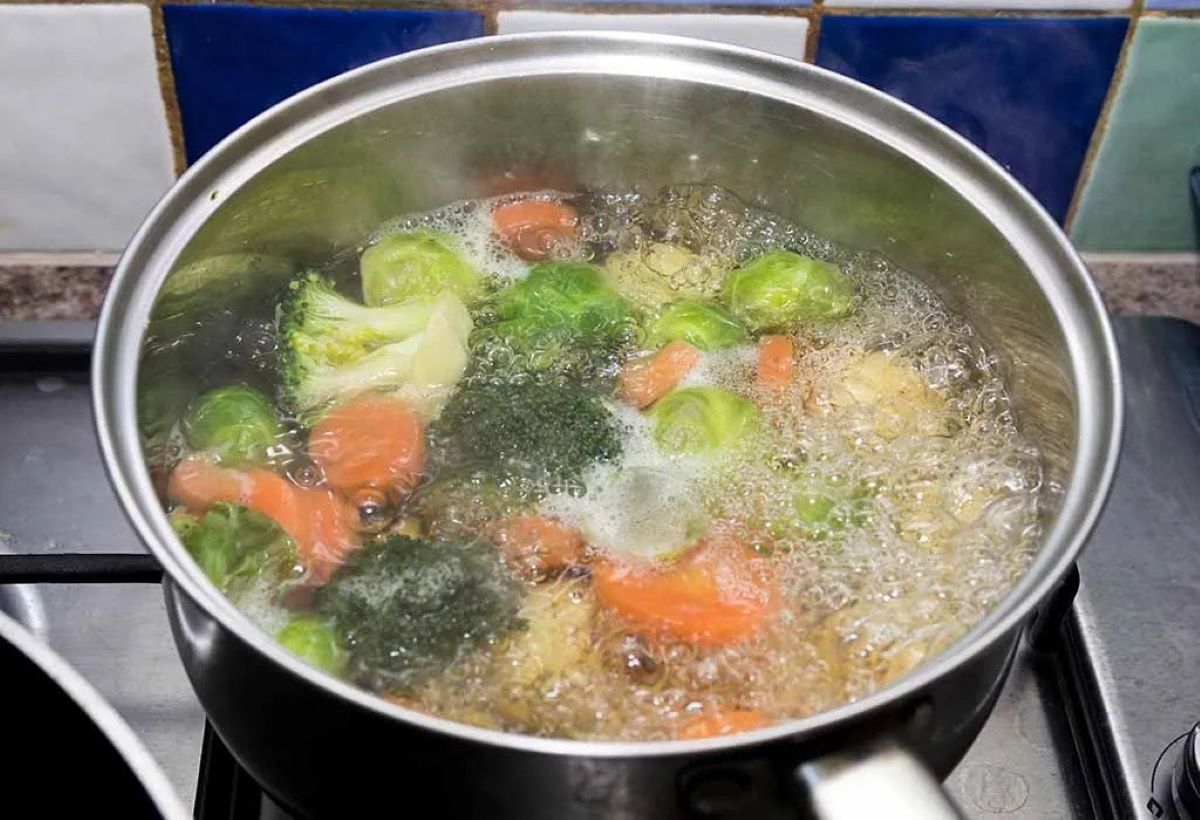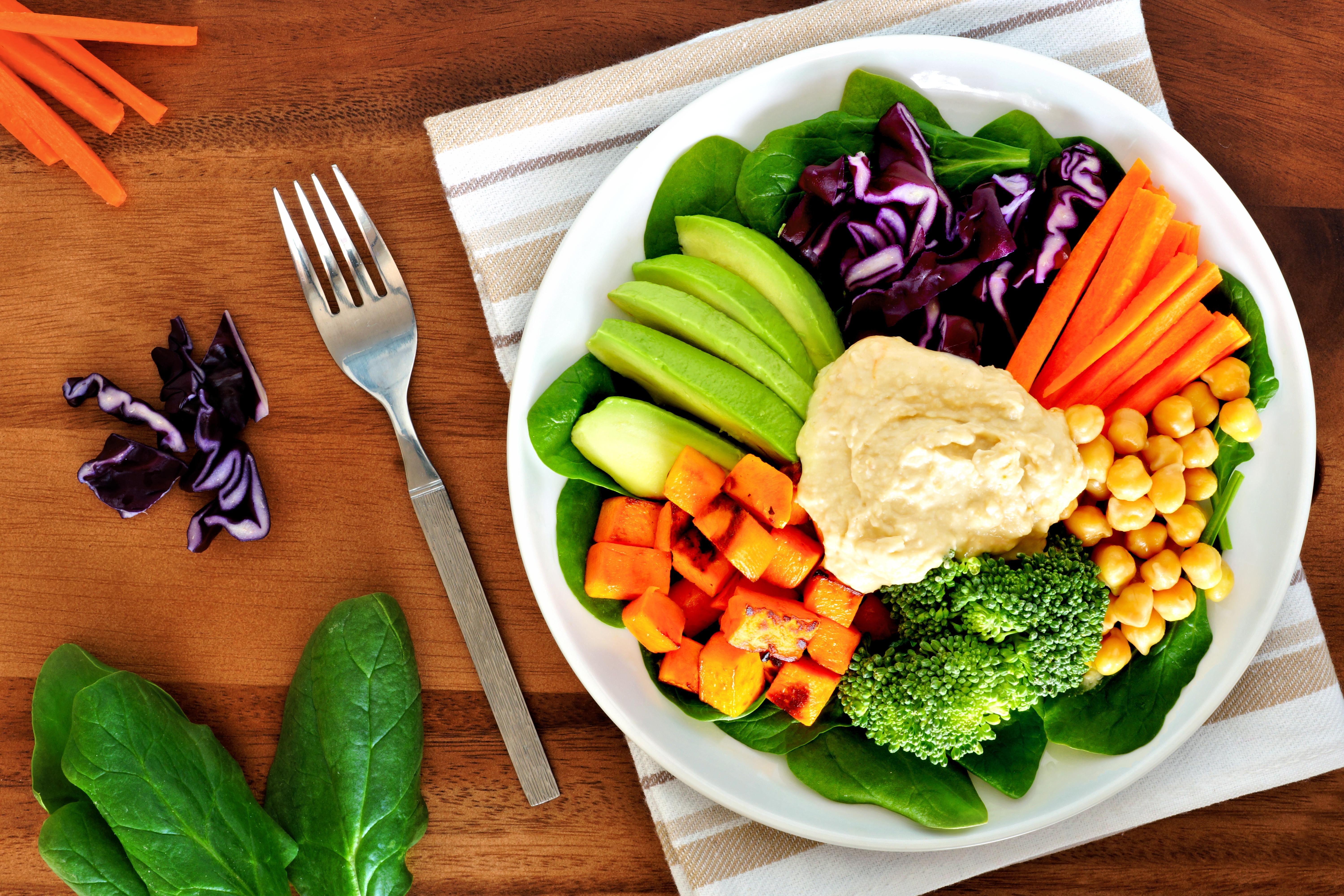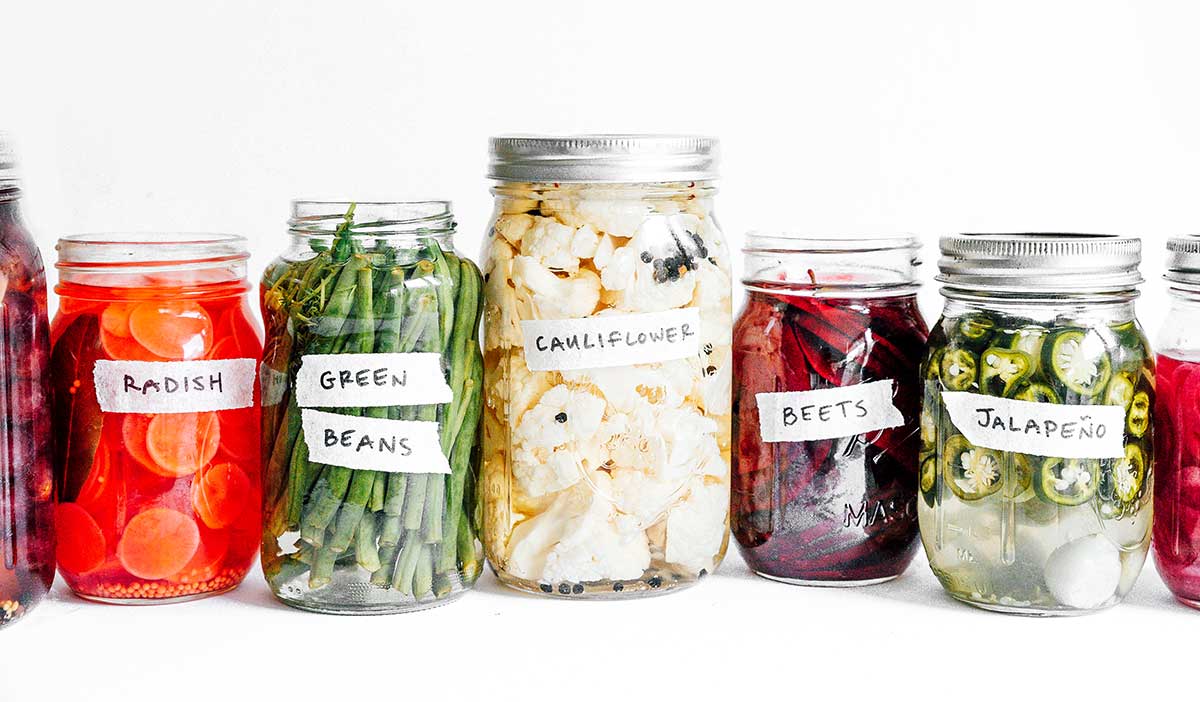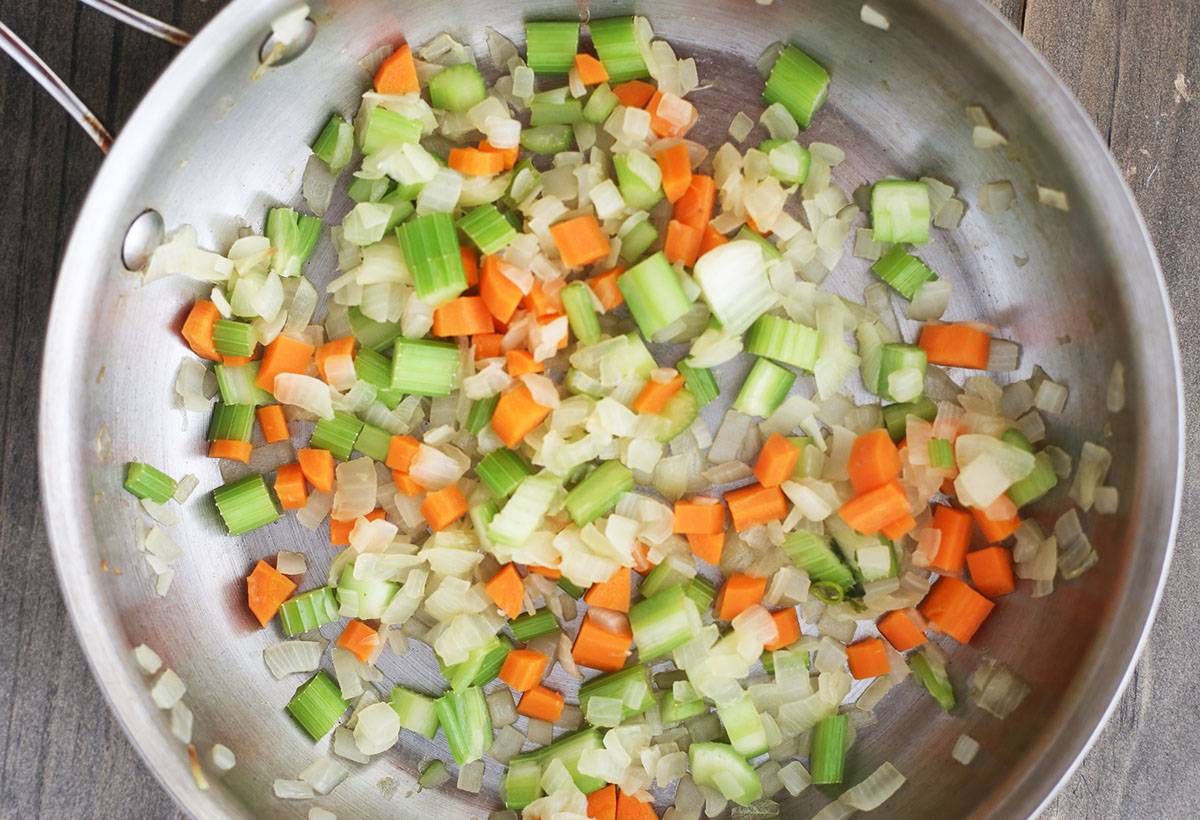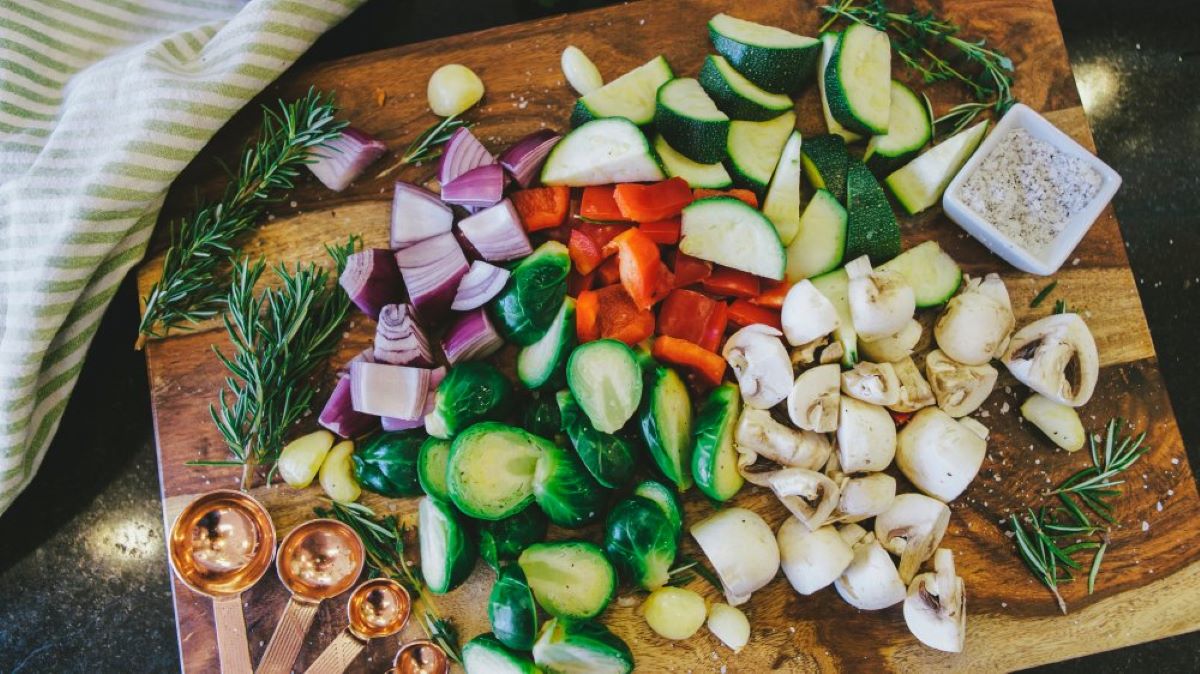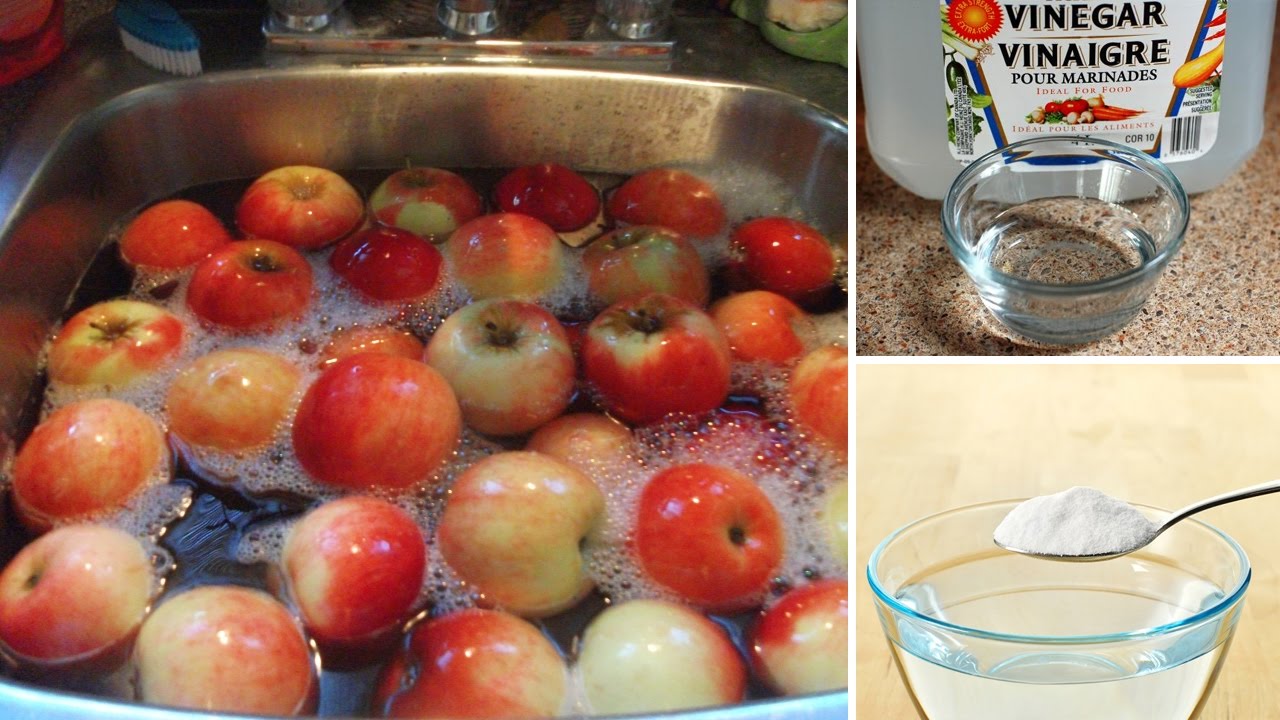Home>Gardening News and Trends>Latest News>How To Marinate Vegetables
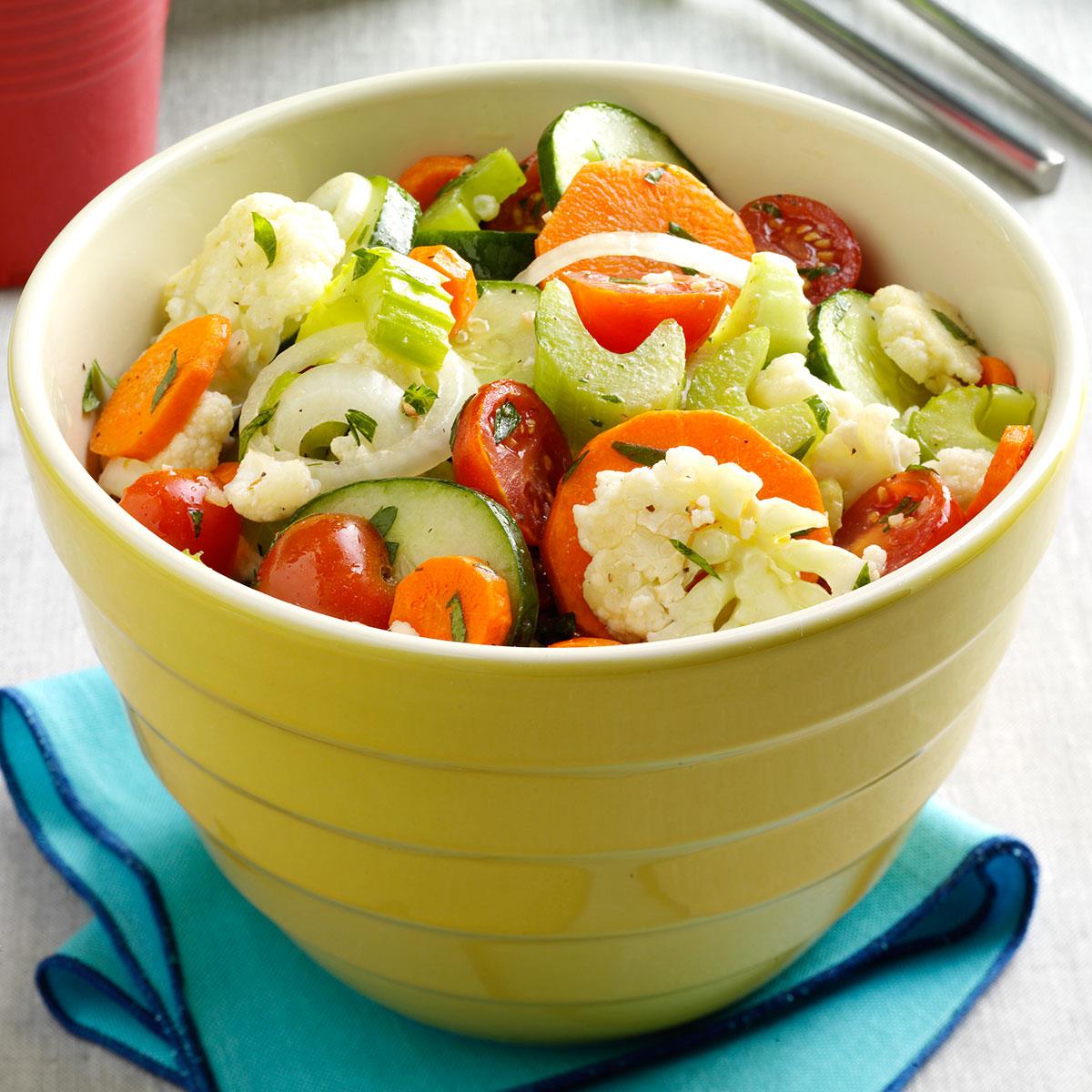

Latest News
How To Marinate Vegetables
Modified: January 22, 2024
Learn the latest news and techniques on how to marinate vegetables for mouthwatering flavors. Discover the best recipes and tips for marinating vegetables at home.
(Many of the links in this article redirect to a specific reviewed product. Your purchase of these products through affiliate links helps to generate commission for Chicagolandgardening.com, at no extra cost. Learn more)
Table of Contents
- Introduction
- Benefits of Marinating Vegetables
- Types of Vegetables that Can be Marinated
- Tips for Preparing Vegetables for Marination
- Basic Vegetable Marinade Recipe
- Marinated Vegetable Salad Recipe
- Grilled Marinated Vegetables Recipe
- Oven-Roasted Marinated Vegetables Recipe
- Stir-Fried Marinated Vegetables Recipe
- Conclusion
Introduction
Welcome to the wonderful world of marinated vegetables! If you’re looking to add some flavor and pizzazz to your vegetable dishes, marination is the way to go. Marinating vegetables not only infuses them with delicious flavors but also helps tenderize them, making them more enjoyable to eat. Whether you’re grilling, roasting, or stir-frying, marinating your vegetables can take them from dull to delightful in no time.
Marinating vegetables involves soaking them in a flavorful liquid, typically consisting of a combination of herbs, spices, oils, acids, and sometimes sweeteners. The precise ingredients may vary depending on the desired flavor profile and the specific vegetables being marinated. Overall, marination is a versatile technique that can be adapted to suit a wide variety of tastes and culinary preferences.
Not only does marination add flavor, but it also offers several other benefits. It helps to enhance the natural sweetness of vegetables, balance their flavors, and reduce bitterness. Marinating can also help to preserve the vegetables, allowing them to stay fresh for a longer period of time.
Marinating vegetables is a great way to elevate any dish. Whether you’re looking to add depth to salads, create a flavorful side dish, or prepare veggies for the grill, marination can do wonders for your culinary creations. In this article, we’ll explore the different types of vegetables that can be marinated, tips for preparing vegetables for marination, and provide you with some delicious marinated vegetable recipes to get you started. So, let’s dive in and discover the world of marinated vegetables!
Benefits of Marinating Vegetables
Marinating vegetables offers a multitude of benefits, both in terms of taste and health. Let’s explore some of the key advantages of marinating your favorite vegetables:
- Enhanced Flavor: One of the primary benefits of marination is the infusion of delicious flavors into the vegetables. By marinating, you can add layers of taste to your vegetables, transforming them from ordinary to extraordinary. The combination of herbs, spices, and other flavor-enhancing ingredients in the marinade can create a depth of flavor that elevates your vegetable dishes to new heights.
- Tenderness: Marination can help tenderize vegetables, especially tougher varieties. The acidic components in the marinade, such as vinegar or citrus juice, work to break down the fibers in the vegetables, making them more tender and enjoyable to eat. This is particularly beneficial when grilling or roasting vegetables, as it helps to prevent them from becoming too tough.
- Nutritional Retention: Contrary to popular belief, marinating vegetables can actually help retain their nutritional value. While cooking methods like boiling or steaming can cause some nutrients to leach out, marinating vegetables before cooking can help preserve their vitamins and minerals. This is particularly true for water-soluble nutrients like Vitamin C.
- Balanced Flavors: Marinating vegetables allows you to balance their natural flavors by adding complementary tastes. For example, you can use a sweeter marinade to balance the bitterness of certain greens or a tangy marinade to enhance the sweetness of root vegetables. This balance of flavors can result in a more harmonious and satisfying vegetable dish.
- Prolonged Shelf Life: Marinating vegetables can help extend their shelf life. The acidic nature of the marinade creates an environment that inhibits the growth of bacteria and helps preserve the freshness of the vegetables for a longer period. This can be particularly beneficial if you have a surplus of vegetables that you’d like to store and use later.
- Versatility: Marination is a versatile technique that can be adapted to various vegetables and cooking methods. Whether you’re grilling, roasting, stir-frying, or even enjoying vegetables raw in a salad, marination can enhance the flavor and texture of any vegetable preparation.
By taking advantage of the benefits of marinating vegetables, you can elevate your culinary creations to new heights while enjoying a range of flavors and nutritional benefits. Now that we’ve explored the advantages of marinating vegetables, let’s move on to the next section, where we’ll discuss the types of vegetables that can be marinated.
Types of Vegetables that Can be Marinated
When it comes to marinating vegetables, the possibilities are endless. You can marinate a wide variety of vegetables, each lending its unique flavor and texture to the dish. Here are some popular vegetables that are perfect for marination:
- Bell Peppers: Bell peppers are not only vibrant and colorful but also absorb flavors well. Marinating bell peppers can add a tangy and savory taste to your dishes. They can be sliced, diced, or even stuffed with a delicious marinade for grilling or roasting.
- Zucchini and Squash: These versatile vegetables are excellent candidates for marination. They can be sliced into rounds or strips and marinated to perfection. The marinade helps to enhance their mild flavors and adds a delightful taste when sautéed, grilled, or roasted.
- Eggplant: Eggplants have a spongy texture that makes them a perfect candidate for marinating. By marinating eggplants, you can enhance their natural flavors and remove any bitterness. They can be marinated in a variety of sauces and used in stir-fries, grilled dishes, or even as a topping for pizzas.
- Mushrooms: Marinating mushrooms can help to intensify their earthy flavors. They absorb marinades easily and can be used in a variety of dishes such as salads, pasta, stir-fries, or even as a topping for grilling. Experiment with different marinades to bring out the best in these versatile fungi.
- Carrots: Carrots lend themselves well to marinating due to their natural sweetness. Marinated carrots can be used in salads, stir-fries, or as a side dish. They add a pop of color and flavor to any dish, especially when paired with complementary herbs and spices.
- Cucumbers: Marinated cucumbers are refreshing and packed with flavor. They make a fantastic addition to salads, sandwiches, or even enjoyed as a standalone snack. The marinade adds a tangy and aromatic element to the cool and crispy cucumber, creating a delicious contrast.
- Tomatoes: While tomatoes are typically enjoyed fresh, marinating them can take their flavor to a whole new level. Marinated tomatoes are perfect for salads, sandwiches, or as a topping for grilled dishes. They become tender and infused with the flavors of the marinade, offering a burst of freshness in every bite.
- Onions: Onions can pack a punch when marinated. Whether you are grilling, roasting, or using them in a salad, marinated onions add a zesty and sweet element to any dish. They can be sliced thin or left in larger rings to enjoy their tangy and flavorful profile.
These are just a few examples of the many vegetables that can be marinated. Feel free to experiment with different combinations of vegetables and marinades to discover your own personal favorites. Now that we’ve explored the types of vegetables that can be marinated, let’s move on to the next section, where we’ll share some helpful tips for preparing vegetables for marination.
Tips for Preparing Vegetables for Marination
Preparing vegetables for marination is essential to ensure that they absorb the flavors of the marinade fully. Follow these tips to get the most out of your marinated vegetable dishes:
- Wash and Dry: Start by washing the vegetables thoroughly to remove any dirt or impurities. Pat them dry with a kitchen towel to remove excess moisture. This step helps the marinade adhere better to the vegetables.
- Cut Consistently: When cutting the vegetables, try to maintain a consistent size and thickness. This helps ensure even cooking and consistent flavor absorption. Choose the shape and size that suits your recipe or desired outcome, such as slices, cubes, or strips.
- Pierce or Score: For vegetables like eggplant or potatoes, consider piercing or scoring them before marination. This allows the marinade to penetrate deeper and helps in even cooking.
- Remove Excess Moisture: Some vegetables, like cucumbers or zucchini, can be watery. To prevent diluting the marinade, remove excess moisture by salting them and letting them sit for a few minutes. Rinse and pat dry before marinating.
- Marinate in the Refrigerator: It’s crucial to marinate vegetables in the refrigerator to prevent bacterial growth. Place the vegetables and marinade in a sealed container or zip-top bag and refrigerate for the recommended time. This allows the flavors to meld and enhances the taste.
- Marinating Time: The duration for marinating vegetables depends on the specific vegetable and the desired intensity of flavor. Leafy greens like lettuce or spinach require a shorter marinating time of around 15-30 minutes, while root vegetables like potatoes or carrots can be marinated for several hours or even overnight.
- Save the Marinade: After marinating the vegetables, save the remaining marinade. You can use it later as a dressing or a sauce to drizzle over the cooked vegetables or your salads.
- Experiment and Adjust: Don’t be afraid to experiment with different marinades and flavors. Adjust the seasoning, acidity, or sweetness according to your taste preferences. Keep a record of your favorite combinations for future reference.
By following these tips, you’ll ensure that your vegetables are well-prepared for marination, resulting in flavorful and delicious dishes. Now that you know how to prepare your vegetables, let’s move on to the next section, where we’ll share a basic vegetable marinade recipe that you can use as a starting point for your culinary creations.
Basic Vegetable Marinade Recipe
A basic vegetable marinade is a versatile foundation that can be customized to suit your taste preferences. Here’s a simple recipe to get you started:
Ingredients:
- 1/4 cup olive oil
- 2 tablespoons balsamic vinegar
- 2 cloves garlic, minced
- 1 teaspoon dried herbs (such as thyme, rosemary, or oregano)
- Salt and pepper to taste
Instructions:
- In a bowl, whisk together the olive oil, balsamic vinegar, minced garlic, dried herbs, salt, and pepper.
- Place your chosen vegetables in a resealable bag or a shallow dish.
- Pour the marinade over the vegetables, making sure they are well coated. If using a bag, squeeze out excess air and seal it tightly. If using a dish, cover it with plastic wrap.
- Marinate the vegetables in the refrigerator for at least 30 minutes, or up to 24 hours for a more intense flavor.
- When ready to cook, remove the vegetables from the marinade and pat them dry with a paper towel, removing any excess marinade.
- Proceed to cooking the vegetables according to your preferred method, such as grilling, roasting, stir-frying, or sautéing.
- The leftover marinade can be used as a dressing or sauce for your cooked vegetables or as a flavor enhancer for salads.
Feel free to experiment with different herbs, spices, and acids to create your own signature marinades. You can add a touch of sweetness with honey or maple syrup, incorporate a spicy kick with chili flakes or hot sauce, or even include some citrus zest for a zestier flavor profile.
Now that you have a basic vegetable marinade recipe, let’s move on to the upcoming section, where we’ll share some delectable recipes that incorporate marinated vegetables.
Marinated Vegetable Salad Recipe
This marinated vegetable salad recipe is perfect for those looking for a light and refreshing dish that showcases the flavors of marinated vegetables. It’s colorful, nutritious, and bursting with flavor. Let’s get started:
Ingredients:
- 2 cups mixed marinated vegetables (such as bell peppers, zucchini, cherry tomatoes, cucumber, and red onion)
- 4 cups mixed greens
- 1/4 cup feta cheese, crumbled
- 2 tablespoons extra virgin olive oil
- 1 tablespoon balsamic vinegar
- Salt and pepper to taste
- Fresh herbs for garnish (such as basil or parsley)
Instructions:
- In a large bowl, combine the mixed greens and marinated vegetables.
- In a small bowl, whisk together the olive oil, balsamic vinegar, salt, and pepper to make the dressing.
- Pour the dressing over the salad mixture and toss gently to combine, ensuring all the vegetables and greens are coated.
- Sprinkle the crumbled feta cheese over the top of the salad.
- Garnish with fresh herbs.
- Let the salad sit for a few minutes to allow the flavors to meld together.
- Serve chilled and enjoy!
This marinated vegetable salad is not only visually appealing but also packs a punch of flavor. The combination of marinated vegetables, mixed greens, and tangy dressing creates a refreshing and satisfying dish. The feta cheese adds a creamy and salty element, while the fresh herbs bring a burst of aromatic freshness.
You can customize this recipe by adding other ingredients like olives, avocados, or even nuts for added texture and flavor. The beauty of this salad is that you can mix and match the marinated vegetables based on your preference or what’s in season.
So, go ahead and enjoy this delicious marinated vegetable salad that is both healthy and full of flavor. Now let’s move on to the next section, where we’ll explore a mouthwatering recipe for grilled marinated vegetables.
Grilled Marinated Vegetables Recipe
Grilling marinated vegetables adds a delightful smoky flavor and charred texture that elevates their taste to a whole new level. This recipe will guide you through creating a delicious dish of grilled marinated vegetables:
Ingredients:
- 2 cups mixed marinated vegetables (such as bell peppers, zucchini, eggplant, and red onion)
- 2 tablespoons olive oil
- 1 tablespoon balsamic vinegar
- 1 teaspoon dried herbs (such as thyme or rosemary)
- Salt and pepper to taste
Instructions:
- Preheat your grill to medium-high heat.
- In a small bowl, mix together the olive oil, balsamic vinegar, dried herbs, salt, and pepper to create the marinade.
- Brush the mixed marinated vegetables generously with the marinade, coating them evenly.
- Place the marinated vegetables on the preheated grill and cook for 3-4 minutes per side, or until they have nice grill marks and are slightly tender.
- Remove the grilled vegetables from the heat and let them rest for a few minutes.
- Serve the grilled marinated vegetables as a side dish or as a tasty addition to salads, sandwiches, or wraps.
The combination of the smoky char from the grill and the flavors of the marinade creates a tantalizing blend of tastes in these grilled marinated vegetables. The sweetness of the grilled bell peppers, the tender texture of the zucchini, and the smoky aroma of the charred eggplant come together harmoniously to create a mouthwatering dish.
Feel free to experiment with different vegetables and variations of marinades. Try adding a squeeze of fresh lemon juice or a sprinkle of chili flakes for an extra kick. These grilled marinated vegetables are incredibly versatile and can be enjoyed as a standalone dish or incorporated into various recipes.
Now that you have a delicious recipe for grilled marinated vegetables, let’s move on to the next section, where we’ll explore an equally enticing option of oven-roasted marinated vegetables.
Oven-Roasted Marinated Vegetables Recipe
Oven-roasting marinated vegetables is a fantastic way to achieve a delicious caramelized flavor and tender texture. This recipe will guide you through creating a mouthwatering dish of oven-roasted marinated vegetables:
Ingredients:
- 2 cups mixed marinated vegetables (such as carrots, potatoes, Brussels sprouts, and red onions)
- 2 tablespoons olive oil
- 1 tablespoon balsamic vinegar
- 1 teaspoon dried herbs (such as thyme, rosemary, or oregano)
- Salt and pepper to taste
Instructions:
- Preheat your oven to 400°F (200°C).
- In a small bowl, combine the olive oil, balsamic vinegar, dried herbs, salt, and pepper to make the marinade.
- Toss the mixed marinated vegetables in the marinade until they are well coated.
- Spread the vegetables in a single layer on a baking sheet.
- Place the baking sheet in the preheated oven and roast for approximately 30-40 minutes, or until the vegetables are tender and caramelized, stirring halfway through cooking.
- Remove from the oven and let the roasted marinated vegetables cool slightly before serving.
The oven-roasting process intensifies the flavors of the marinated vegetables, resulting in a rich and satisfying dish. The natural sweetness of the roasted carrots, the crispy edges of the Brussels sprouts, and the caramelized onions all come together to create a delightful combination of textures and tastes.
Don’t be afraid to experiment with different combinations of vegetables and marinades. You can add a sprinkle of Parmesan cheese or a handful of toasted nuts for added texture and flavor. These oven-roasted marinated vegetables can be served as a delightful side dish or incorporated into various recipes.
Now that you have a tempting recipe for oven-roasted marinated vegetables, let’s move on to the next section, where we’ll explore a savory stir-fried marinated vegetables recipe.
Stir-Fried Marinated Vegetables Recipe
Stir-frying marinated vegetables is a quick and flavorful method that allows the vegetables to retain their crunch while absorbing the delicious marinade. This recipe will guide you through creating a delectable dish of stir-fried marinated vegetables:
Ingredients:
- 2 cups mixed marinated vegetables (such as broccoli, snow peas, bell peppers, and carrots)
- 2 tablespoons vegetable oil
- 2 cloves garlic, minced
- 1 tablespoon soy sauce
- 1 tablespoon oyster sauce (optional)
- 1/2 teaspoon sesame oil
- 1/2 teaspoon cornstarch (optional, for thickening the sauce)
- Salt and pepper to taste
Instructions:
- Heat the vegetable oil in a wok or a large skillet over medium-high heat.
- Add the minced garlic and stir-fry for about 30 seconds until fragrant.
- Add the marinated vegetables to the wok and stir-fry for 3-4 minutes, or until they are tender-crisp.
- In a small bowl, mix together the soy sauce, oyster sauce (if using), sesame oil, and cornstarch (if desired) to create the sauce.
- Pour the sauce over the stir-fried vegetables and toss to coat evenly.
- Cook for an additional 1-2 minutes, or until the sauce has thickened and the vegetables are fully coated.
- Adjust the seasoning with salt and pepper, if needed.
- Remove from the heat and serve the stir-fried marinated vegetables as a flavorful side dish or over steamed rice or noodles.
The stir-frying technique quickly cooks the marinated vegetables while maintaining their vibrant colors and crisp texture. The combination of the savory soy sauce, the hint of sweetness from the marinade, and the aromatic garlic enhances the flavors of the vegetables, creating a mouthwatering dish.
Feel free to add your favorite protein, such as tofu, chicken, or shrimp, to make it a complete and satisfying meal. You can also customize the vegetables based on your preference or what’s in season. The stir-fried marinated vegetables can be served as a standalone dish or used as a tasty topping for rice, noodles, or even wraps.
Now that you have a tantalizing recipe for stir-fried marinated vegetables, let’s move on to the next section, where we’ll conclude our journey through the world of marinated vegetables.
Conclusion
Exploring the realm of marinated vegetables opens up a world of culinary possibilities. From enhancing the flavor of your favorite vegetables to adding depth to your dishes, marination is a technique that can take your vegetable creations to new heights. Whether you choose to grill, roast, stir-fry, or enjoy them raw in a salad, marinated vegetables offer a burst of flavor and a delightful texture in every bite.
We’ve discussed the benefits of marinating vegetables, including enhanced flavor, tenderness, nutritional retention, balanced flavors, prolonged shelf life, and the versatility it provides in creating amazing dishes. We also explored the types of vegetables that work well with marination, ranging from bell peppers and zucchini to eggplant and mushrooms.
Preparing vegetables for marination is an important step to ensure maximum flavor absorption. Proper washing, cutting, and piercing or scoring can enhance the marination process. Additionally, we shared a basic vegetable marinade recipe that serves as a versatile foundation for your culinary experiments.
We then delved into some delicious recipes, including a marinated vegetable salad that combines the freshness of mixed greens with tangy marinated vegetables and a dressing that ties it all together. We explored the smoky flavors of grilled marinated vegetables, the rich caramelization of oven-roasted marinated vegetables, and the quick and flavorful stir-frying technique for marinated vegetables.
By incorporating marinated vegetables into your meals, you can add a burst of flavor, elevate the taste profile, and enjoy the numerous health benefits of vegetables. With endless possibilities for customization, you can experiment with different marinades, herbs, and spices to create your own signature dishes.
So, why not embark on a culinary adventure and start marinating your vegetables? From marinated salads to grilled, roasted, or stir-fried creations, marinated vegetables will elevate your cooking and bring a whole new dimension of flavor to your table. Embrace the versatility and taste the delicious rewards of marinated vegetables!
